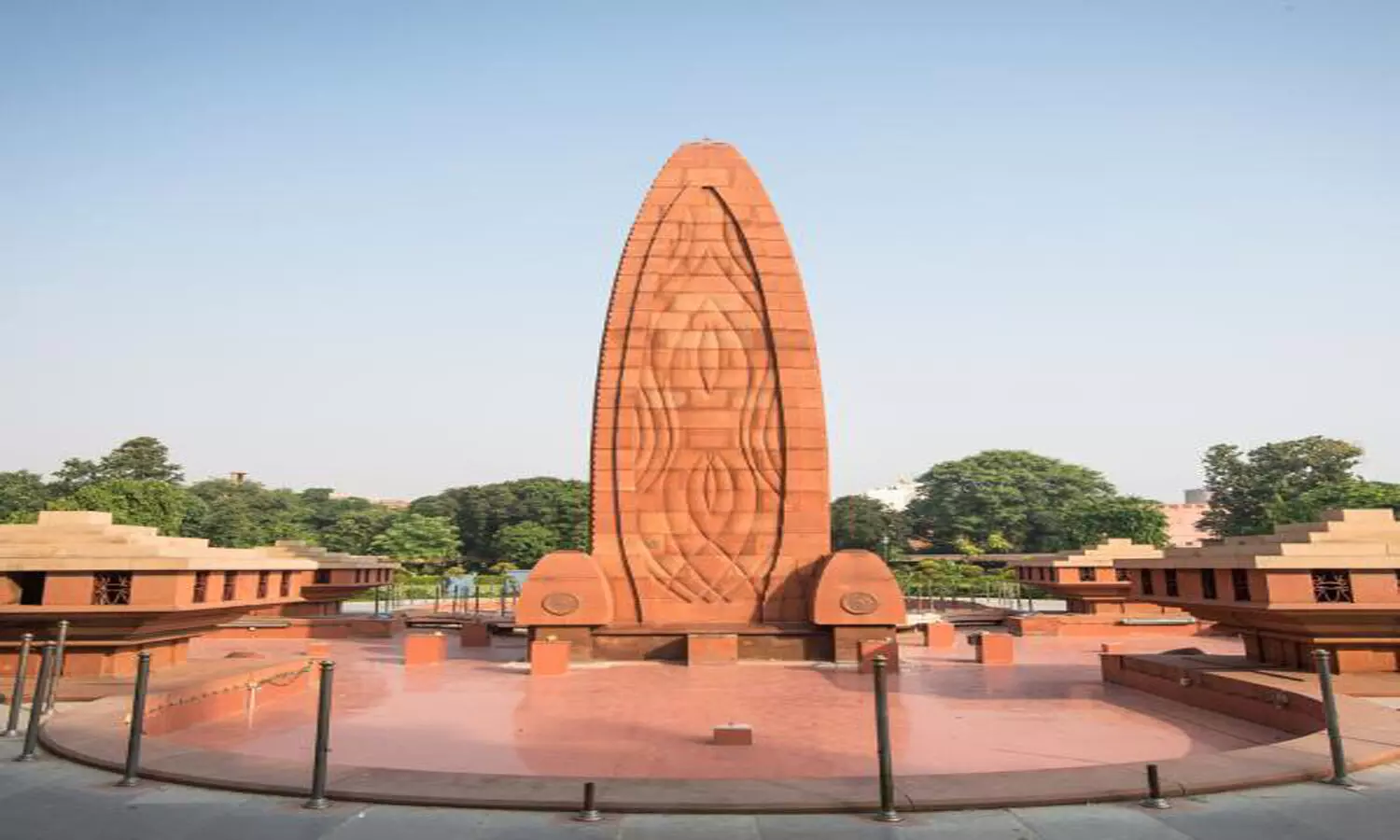TRENDING TAGS :
Jallianwala Bagh's 102nd Anniversary: Here's all you need to know about it
People were not made aware of the Martian Law imposition that prohibited public gatherings and had gathered to celebrate the festival of Baisakhi.
Jallianwala Bagh (Social Media)
The Jallianwala Bagh Massacre is an event that continues to haunt us even more than 100 years later. This fateful day marks the day when General Reginald Dyer had ordered his troops to open fire at a crowd of unarmed civilians on April 13, 1919. While the official figure released by the British claimed that a little over 350 people lost their lives in the massacre, the Congress party claimed that the number was as high as 1,000.
The Britishers had banned gatherings at the time and punished civilians for their 'disobedience'. People were not made aware of the Martian Law imposition that prohibited public gatherings and had gathered to celebrate the festival of Baisakhi.
On the 102nd anniversary of the Jallianwala Bagh Massacre, here are some facts about this day.
Facts:
That day witnessed incessant firing for 10 to 15 minutes, which included 1,650 rounds of bullets being fired on the spot; which resulted in the death of over 1,000 people. However, the official reports stated 379 people as deceased and 1,200 as wounded.
The place where the massacre took place, was a garden known as Jallianwala Bagh and was closed from three sides as there were houses built around it with their back walls enclosing the area. Barring the main entrance, there was no way for the people gathered to flee.
The colonial troops entered Jallianwala Bagh and blocked the main entrance to ensure no one could flee. Many people to save themselves and to prevent getting killed by the soldiers, jumped into a well.
Following the incident, General Dyer was removed from duty after the Hunter Commission submitted its report. Dyer's deed even earned him the name, "the Butcher of Amritsar". He died of a cerebral haemorrhage and arteriosclerosis, on July 23, 1927.
After the massacre, Rabindranath Tagore refused to accept his knighthood as a protest to the heinous Jallianwala Bagh massacre. Mahatma Gandhi too returned his 'Kaiser-i-Hind' award.
Stay tuned with the newstrack to get fastest updates. Click @englishnewstrack to follow us on Facebook and @newstrackmedia to follow on Twitter.



